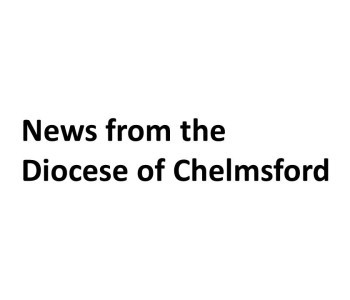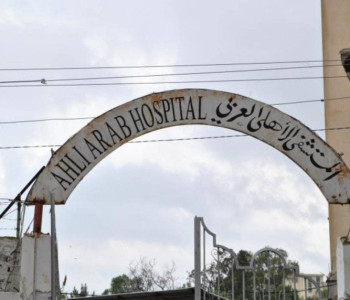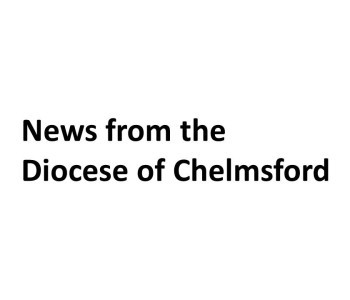26 February 2022
In my last ad clerum I wrote of my intention to use today’s Presidential Address to reflect a little on our forthcoming period of Holy Sabbatical during this coming season of Lent. So, if you read the letter (and I’m not assuming you all did) this address won’t come as a surprise.
But before I get on to that, it would be remiss of me not to make reference to the unfolding events in Ukraine and the great act of evil that we’re witnessing on our television screens and on social media. Already we are seeing heart-breaking stories which remind us once again of the destructive nature of war: on communities, families, and nations. Yesterday the Archbishops of Canterbury and York called for an international conference to secure long term agreements for stability and lasting peace. They also called for Christians to make this Sunday a special day of prayer. I hope that all the churches and worshipping communities across our Diocese will join them in praying for peace, for those who are taking important decisions at this time and particularly for all those who are already suffering from fear, heartbreak and sorrow.
And so as we turn our attention now towards our own concerns and the life of this diocese, I hope that we’ll retain a sense of perspective on the challenges we face and remember that our greatest calling is always to be those who live in peace and harmony, through our shared life in Jesus Christ.
Since my earliest days in the Diocese, from the very first encounters I had, I sensed the high levels of exhaustion and anxiety that were around. I don’t want to rehearse the reasons for this – they’re complex and multi-faceted and we all know them well enough. But I do, as I’ve done before, want to name the reality which is our present context. Under pressure, the extremes of human nature often reveal themselves and I think we’ve seen that demonstrated in our Diocese. There have been extraordinary acts of kindness and generosity shown by individuals and church communities, where the love of Christ has been lived out, bringing light into the darkness many have experienced. And I thank each and every one of you for the part that you have played in that.
But there have also been examples of what I can only call poor behaviour – of people under pressure demonstrating a lack of gentleness and patience, an absence of compassion and a dearth of the kind of forgiving and generous spirit we are called to. Much of this is understandable, given the circumstances, but if we are naming reality, then this too must be named; and if we are to address it, then we must be intentional about it. If we cannot be kind to each other, then we cannot fulfil our mission in the world.
During these months since I became your bishop I, together with others, have begun to address some of the challenges we face. Early on, I quickly realised that the luxury of waiting wasn’t an option. But I’ve also had this sense that as a Diocese we would benefit from finding a way to pause and take a deep breath; to take stock and draw on the gifts of the Holy Spirit as we set our faces towards that which lies ahead. That, in a nutshell, is what the Holy Sabbatical is about. A metaphorical pause, giving us the opportunity to breathe deeply, to rest and to recalibrate as we strive to hear God’s voice beckoning us towards a new future.
The Holy Sabbatical is, and I say this emphatically, not an initiative. I know that many are weary of initiatives coming from the so-called centre and I’ve consciously sought to reduce or even avoid these. The Holy Sabbatical is, rather, an invitation for each of us individually, but also together in our various groups and communities, to step into a different rhythm and a different way of being. It may be about the deepening of our personal discipleship but it's also, and primarily, about our corporate life together and how we might – as a Diocese - hear what God is saying to us. So, it is an invitation, and if you choose to respond, it will offer you a balm; but it will also involve a challenge because to truly listen to God means we must construct spiritual practices and daily habits of prayer. There is no short cut; it won’t happen automatically but will require discipline and commitment.
This won’t be an easy ride and I’m certainly not advocating a lazy approach to Lent. This period is not about doing nothing but choosing to do the most important thing of all which is giving time to God. Some business will have to carry on as usual but you are being invited to prioritise carefully, reduce busyness as much as possible and come before God with no agenda other than to be in his presence. And of course, the more of us choose to participate (individually and collectively) the greater the impact is likely to be; because I have no doubt there will be an impact. But, and this is the paradox, we’re not engaging for the sake of the outcomes but simply because it is good to bring ourselves before God and dwell there. So, we are stepping out in faith (expecting to be transformed) but we are also making a statement of intent, which is to be open, to listen and seek the wisdom of the Holy Spirit. Members of the Bishop’s Leadership Team and I will be reading a book together, called The Mystic Way of Evangelism and we’ll be spending time with one another each week during Lent – some business, yes, but also time for shared silence, prayer and reflection and we’ll move around the different Episcopal Areas as we do this.
And as others of you find ways of engaging, I want to say that we need also to honour the fact that there are different ways of experiencing God and so different church traditions and spiritualities should feel free to explore varying approaches. There is no right or wrong. I’ve also asked the Cathedral to lead on sharing resources and they’ll provide opportunities for those who wish to come together and experience different forms of prayer – so do keep an eye on their website. Tom Geldard, our Communications Director, will also ensure that resources, stories and prayers are shared on The View and on Social Media and my chaplain, Rosie Woodall, has written a Collect which we’ll share, and which I encourage you to use widely and frequently.
So we will have plenty of words to help us through this period. But beyond that, and much more importantly, I’m hoping that during these 40 days we will together step into a period of sustained stillness and silence, to rest in the Lord and wait upon the Holy Spirit. John of the Cross spoke of Silence as God’s first language – a language many of us find difficult but which we are invited to learn more of. And since ancient times there has been an emphasis on Lent as a time of reflection and healing; a time when study and learning give way to prayer and contemplation. I don’t quite know where this will take us but I have a deep conviction that it will be time well spent and that we will emerge better ready for whatever the future demands of us.
We will enter the Holy Sabbatical with a gathering for clergy and lay ministers on Shrove Tuesday, here at the Cathedral – I’m not a fan of three line whips but I want strongly to encourage our clergy and lay ministers to be there so that we can demonstrate our intention through mutual support for one another. I have said since my earliest times, and I reiterate again, the tasks before us in this Diocese are not mine alone. I cannot do them on my own, I need to do them with clergy and lay ministers alongside me – colleagues, friends, disciples together. If you are a member of clergy or an LLM who hasn’t yet signed up, then please do so today.
And on that note, let me say a brief word about wellbeing. I’m conscious that there has been a delay in bringing the Covenant for Clergy Care and Wellbeing to this Synod. I expressed my intention for this to happen early on and I can only apologise that it hasn’t been possible to do so. Events have conspired and meant that important and pressing matters have needed the attention of those who will be leading in this area. Rightly or wrongly, I’ve taken the decision that it’s better to delay until we meet in November, rather than address the issues in a half-baked way. It’s also worth remembering that the Covenant is not going to be the answer to all our wellbeing challenges. It will offer us tools and enable us to talk about this important area of our life, something I hope we’ve already started doing, but it’s unlikely to be the panacea that some may be hoping for; and Covenant or no Covenant, I hope we’ll all continue to reflect on how to look after ourselves and one another, in a way that expresses our corporate life in Jesus Christ.
So, my friends, thank you for being here today and thank you, as always, for your contribution to the life of our diocese. A reminder that later this afternoon we’ll be formally welcoming +Lynne as +Barking and, with others, I’m hugely looking forward to the start of her public ministry, which will begin on 21st March. Please join me in praying for her and the Barking Area during this time of transition.
+Guli Chelmsford
Diocesan Synod
26 February 2022
The Lent Holy Sabbatical
In the video below, Bishop Guli talks about the forthcoming Lent Holy Sabbatical during her Presidential Address





